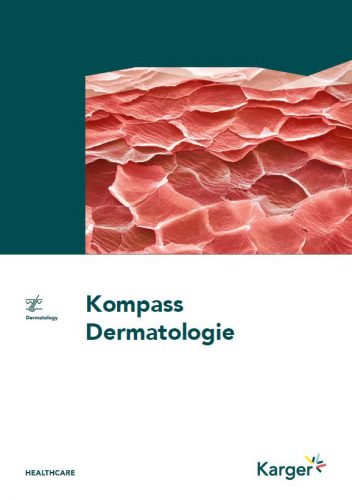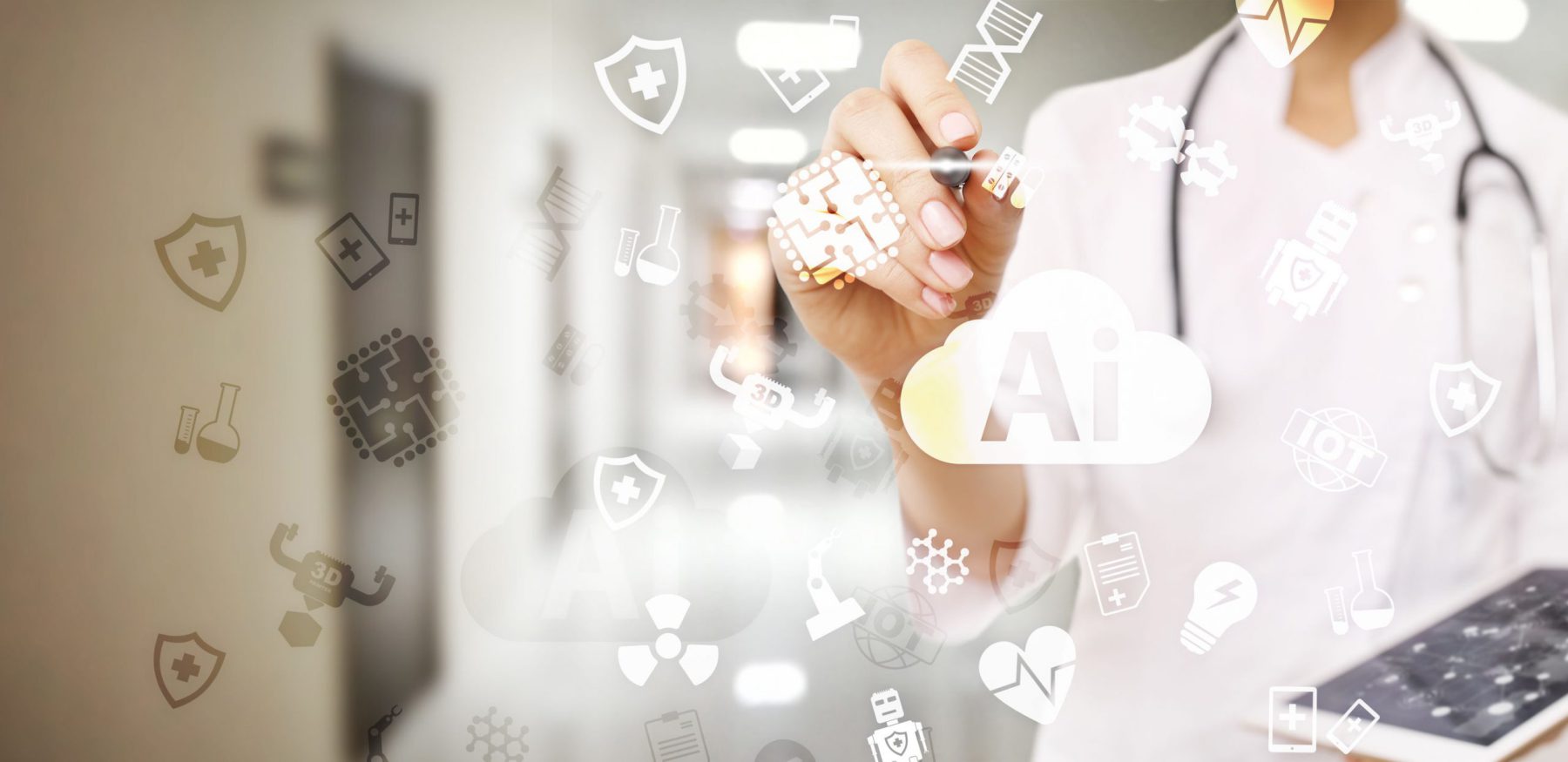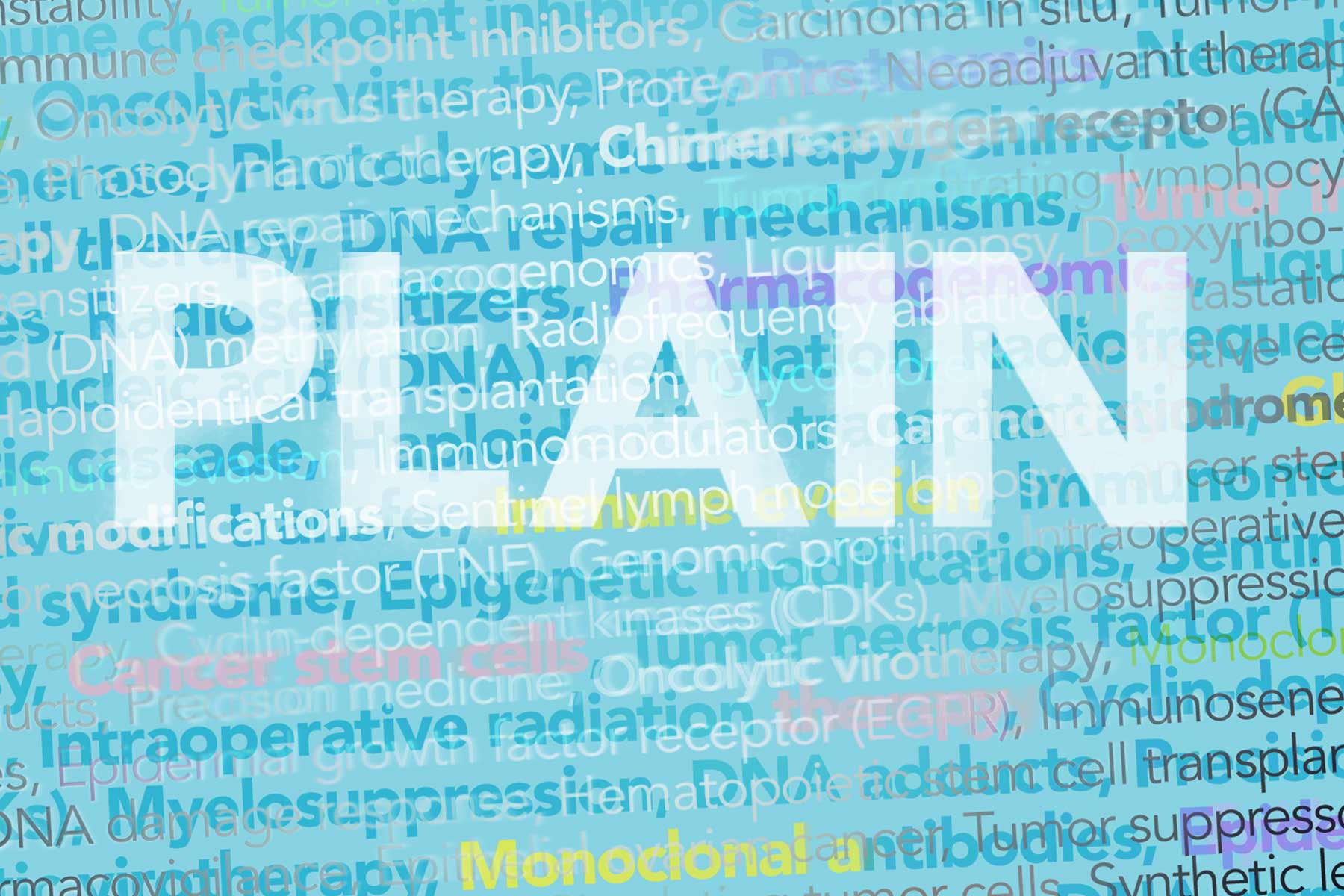Medical applications, teledermatology, machine learning: There is a vast trend of digitalization in dermatology, and we are at the forefront.
Digital Health is firmly established in the knowledge landscape of Karger Publishers’ Kompass series. We publish focus issues, numerous individual articles, and now also a recurring section of our Kompass Dermatologie. This is a positive development considering that “[t]he digital transformation in healthcare will significantly change medicine in the coming years. And this affects diagnostics, therapy, and follow-up care” — as Prof. Dr. David Matusiewicz describes it in the issue of Kompass Dermatologie focusing on “Digitalization in Dermatology”. Prof. Matusiewicz, who was working on Big Data in dermatology as early as 2012, is well known in the field of Digital Transformation in Healthcare, and we welcome his collaboration. Dermatology in particular is predestined for the use of digital innovations, neural network support, machine learning, and artificial intelligence.

Kompass Dermatologie
Quality Assurance Is Important
Thus, an entire issue is dedicated to this subject. “We will have to get used to the dermatologist in the trouser pocket”, says Prof. Matusiewicz — and the content of issue 4-2020 reflects the multitude of smartphone applications. Applications such as derma2go, AppDoc, NALA, and imitoCam show the broad spectrum of possibilities. Apps enable direct access to dermatological assessments, record the course of disease, and promote therapy adherence, as well as supporting physicians via photo documentation. However, as Dr. Wiebke Sondermann points out: “To ensure quality, scientific evaluation of new teledermatological applications is essential.”
AppDoc, for example, has undergone such an evaluation. The first scientifically assessed experiences are positive and indicate a high level of diagnostic and therapeutic quality of the application. Despite the euphoria surrounding the advancing development and use of apps and AI systems, physicians now face new challenges: “They must be able to deal with this second opinion”, says Lion Lehmann in his article on the opportunities and limitations of apps in dermatology with regard to prevention, treatment, data protection, and patient safety. In addition, the physician remains liable for potential misdiagnoses. New technical advances thus harbour both opportunities and challenges for patient safety.
Guidelines for Teledermatology
Since October 2020, the S2k guideline Teledermatology has been providing orientation and recommendations for daily practice in Germany. Two authors simultaneously reviewed the new guideline for the Kompass. Dr. Natalia Kirsten, who was part of the expert committee that created the guideline, states: “With the publication of the guideline, there is now also legal support for the use of teledermatology.” However, she goes on to caution: “There are, nevertheless, numerous limitations that arise from lack of evidence for the use of teledermatology procedures for individual diagnoses.” Dr. Estefania Lang also sees room for improvement in the new teledermatology guideline: “The question of which teledermatology tools and procedures could and should be used in a patient at a certain time definitely needs further study.”
Digital Competence for Doctors, Orientation for Patients
In any case, the care of dermatological patients is increasingly informed by digital features, a fact that is somewhat less of a headache for young physicians as “digital natives” than it is for older colleagues. As Max Tischler of the Alliance of Young Doctors and Young Dermatologists points out: “There is a need for further education and training for physicians in order to meet the growing demands of patients and new technologies such as Big Data, augmented reality, and artificial intelligence”. He adds: “At present, digital competence is not always reflected in the continuing professional development regulations for physicians”. For the future, young doctors wish for basic training in digital technologies as part of their continuing education as well as optimal technical equipment at the workplace. In this context, the Alliance of Young Doctors requested the establishment of a “Doctor of Digital Medicine” on June 15, 2020, a kind of quality seal to provide orientation for digitally minded patients.
Dream Team – Human & Machine
An example from the Technical University of Munich shows how digital competence can already be promoted among medical students. In May 2019, the interdisciplinary course “New Technology and the Healthcare of Tomorrow” was offered for the first time under the direction of Dr. Alexander Zink. Interdisciplinarity is particularly important to the organizers of the seminar, with the goal that participants should learn about the many facets of digitalization. Therefore, start-up representatives and political spokespersons, but also lawyers, ethicists, financial experts, and hackers will be giving lectures.
Dr. Zink is also the contact person for the Digital Dermatology working group of the German Dermatological Society, which aims to create a network of all those interested in new technologies in dermatology. An important goal! As Prof. Matusiewicz states: “Digitalization is teamwork. It means above all connectivity and communication, nothing more.” The team of human and machine will increasingly act as a dream team in which each compensates for the other’s weaknesses, leading to better practice in dermatology. It is our goal and motivation to contribute to this.
Are you involved in digitization in medicine and would like to share your experiences with us?
Contact us!






Comments
Share your opinion with us and leave a comment below!